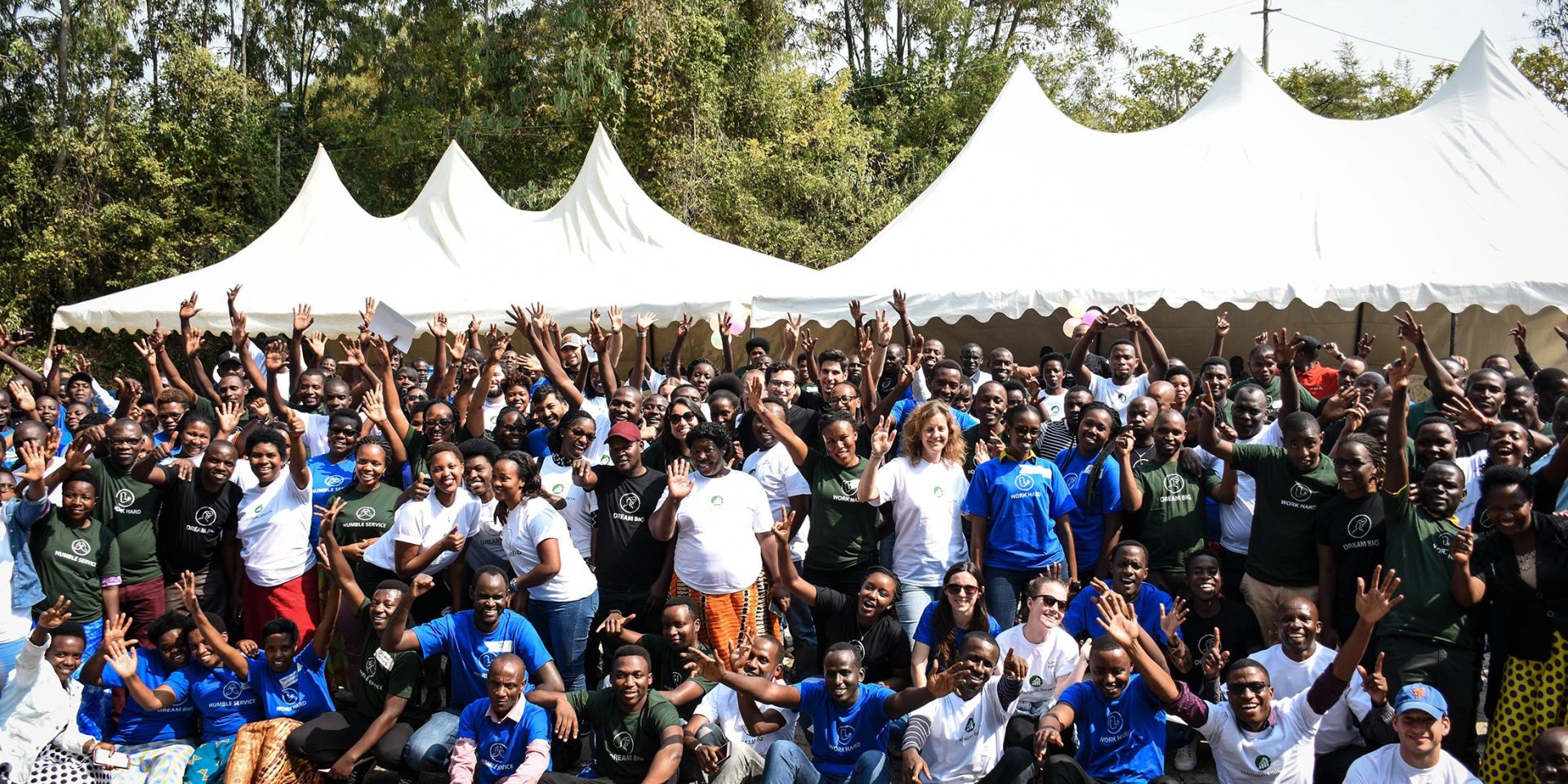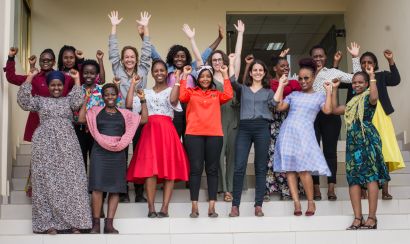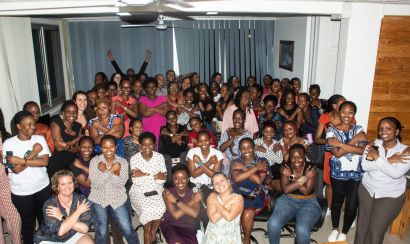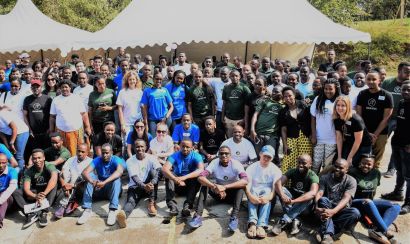Diversifying Our Team As We Grow
A letter from Andrew Youn, One Acre Fund's Co-Founder and Executive Director of One Acre Fund
One of our core values is continual improvement. So, I wanted to talk about what I consider to be One Acre Fund’s biggest opportunity to improve: building a more diverse and inclusive organization.
While our 7,500-person team is proudly 96% African overall, the majority of our senior leadership positions, such as country leads and general partners, are still held by international staff. This is a weak point in our organization. We simply need more African leaders, with deep market knowledge and a long-term commitment to the communities we serve, at that level.
The situation naturally raises tough questions: “Is One Acre Fund sincere in its hiring outreach to African talent markets?” and “Are we an organization where all staff have abundant opportunities to learn and advance?” I welcome the challenge because I believe it has pushed us in healthy ways. My answer to these questions is an emphatic “Yes, absolutely!” And also: “We have a lot of room for improvement.”
I genuinely believe that diversity and inclusion is both an incredible opportunity for One Acre Fund, and a business imperative as we grow. As our organization matures, we are getting more intentional about building a team and culture that will guide us through our next phase of growth.
Our Early Years
First, some context. During One Acre Fund’s early years, from 2006 to 2013, we were focused on establishing our basic value proposition, growing a thousandfold in farmers served, and hitting our short-term targets for the month. We were not yet thinking about investments that would be critical for long-term growth and impact.
In our focus on the day-to-day, we overlooked the vital importance of building a truly diverse leadership team, one that fosters differences of perspective and represents the countries and communities we serve.
Personally, I also over-relied on my U.S. networks in hiring. Every time I opened my email, I had talented Americans pouring in, without having to do any proactive outreach. I didn’t reach out to many senior African candidates because it was comparatively easier to tap into my American networks.
None of this is intended as an excuse—rather, it is an explanation of how things came to be. Looking back, this was my biggest mistake as a leader. And it is also why diversity and inclusion are now such a top priority, both for the organization and for me, personally. Our historical lack of diversity has been a major weakness for One Acre Fund, one that I take responsibility for. As a result, we are making up for the lost time.
Where We Are Headed
By 2014, we had grown to over 1,000 employees. After this flurry of growth, we realized it was overdue to invest more consciously in our people and to shape who we wanted to be as an organization in the long term. We standardized job expectations and promotions, created leadership development courses, and moved our recruitment team to East Africa. Building on that foundation, I believe we are making substantive progress.
- Diversity. We’ve had a sustained focus on both staff development and hiring. In the past two years, nearly three-quarters of our management-level positions in Africa have been filled by Africans. The majority of jobs posted on our website today are only open to African nationals, which recognizes the profound value of local knowledge and experience they bring to these roles.
- Inclusion. We are in the early stages of creating an environment where staff of all nationalities, cultures, and perspectives can thrive. We are expanding listening sessions and staff discussion forums, while also addressing more foundational systems like our benefits structure. We also recently restructured our top-level leadership meeting to include a broader range of voices because it makes decision-making stronger.
To be clear, we still have work to do. If you look at the daily felt experience of an average staff member at One Acre Fund, it would show that we are still in the process of change.
It is well-known that, as organizations diversify, this is the most challenging time for inclusion. It takes time to authentically examine both conscious and unconscious barriers and to fully capture the real opportunities that diversity brings. I feel proud that this progress at One Acre Fund has found a firm footing, and we are absolutely committed to bringing this long-term improvement to our business.
My Own Work As A Leader
Personally, I have set up at least one new conversation a week where I seek to learn from a colleague with a different perspective, whether due to nationality, gender, job level, or background. These conversations are unquestionably challenging my thinking and strengthening wider strategy. At a more tactical level, I spend two hours each week on recruitment outreach in African talent markets.
I am also examining the assumptions that I carry, and the way they shape my own perceptions of performance. For example, I am working to better distinguish traits that deliver strong business results (like open communication) from those that are merely preferences (like the formatting of documents). I am also considering how we can adjust our organization-wide hiring and promotion criteria to reflect these learnings.
I will be the first to admit that it isn’t easy to do these things and that it has been a learning curve for me. But the only way we can get better—both individually and as an organization—is by continually challenging ourselves, making and acknowledging mistakes, and ultimately improving.
While we have more ground to cover, I feel that progress is now firmly rooted at One Acre Fund and that we are committed to an authentic, long-term push to improve diversity and inclusion as a major driver of long-term business results. I hope that these reflections advance an important discussion, and serve as a call for change in this critical work to build a more diverse and inclusive One Acre Fund.
Farmers First,
Andrew Youn
Co-Founder and Executive Director of One Acre Fund




